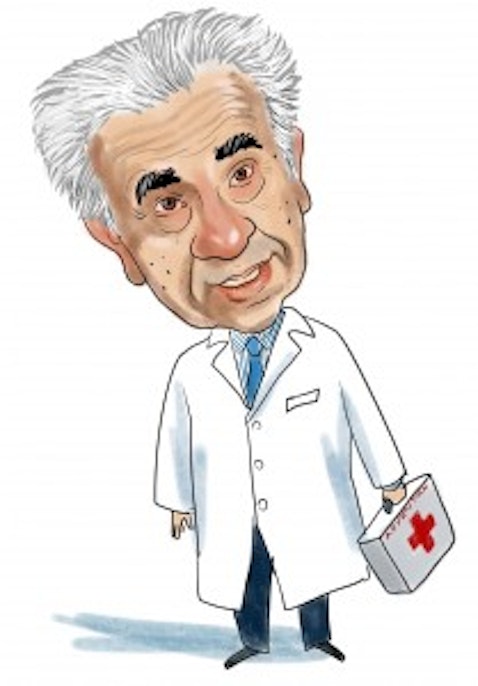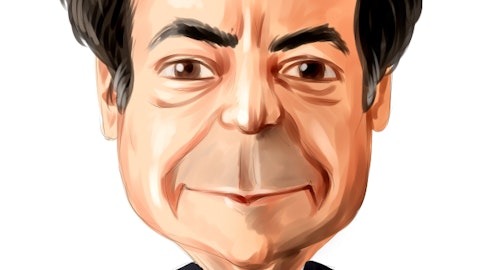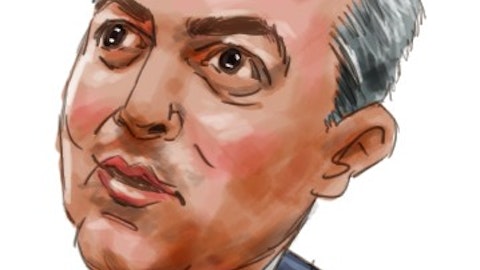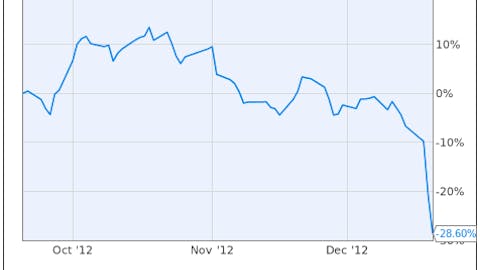
U.S. railcar maker Greenbrier Companies Inc (NYSE:GBX) has yet again rejected a bid from American Railcar Industries Inc, controlled by activist investor Carl Icahn, saying the sweetened offer still undervalued the company. Greenbrier’s latest snubbing intensifies a takeover battle that was revived by Icahn after nearly five years. Icahn tried to merge the companies in 2008 but dropped the bid later that year, saying a combination was not possible due to “unresolved issues.” () On Wednesday, American Railcar increased its offer by 10 percent to $22 per share, valuing Greenbrier at $597 million, after Greenbrier rejected an earlier $20 per-share bid.
HFRX Global Hedge Fund Index gains +0.75% through mid-December (3.35% YTD) (Opalesque)
Global financial markets posted gains through mid-December 2012, as reflecting cautious optimism and improved investor sentiment with regard to political and macroeconomic uncertainty of the US fiscal cliff and the European banking and sovereign debt crisis. Equity markets posted gains across most regions, including US, European and Asian, with equities in China, other Emerging Markets and small cap posting the most significant gains. Most sectors also posted positive performance through mid-month, with gains in Financials and Telecom offsetting declines in Energy and Commodity related exposure. US treasury yields rose as the curve shifted upward across most maturities, while Gold posted declines, consistent with most other Metals. The Euro and British Pound gained against the US dollar on positive developments with regard to European bank risk oversight framework, however the Japanese Yen fell against the US dollar following Japanese elections and in expectation of additional BoJ stimulus. Oil and Natural Gas declined through mid-month, however most Agricultural commodities rose, with Cotton and Lumber leading gains.
Hedge fund exit requests jump after lacklustre year (Reuters)
Client demands to pull money out of hedge funds rose to their highest level in more than three years in December, at the end of a year that has left many investors disappointed with performance. Hedge fund administrator SS&C GlobeOp’s forward redemption indicator, a monthly snapshot of clients giving notice to withdraw their cash as a percentage of assets under administration, measured 6.19 percent in December.
Odey Opus Fund put on Hargreaves Lansdown’s Wealth 150 (Portfolio-Adviser)
Hargreaves Lansdown has added Crispin Odey’s £199.6m CF Odey Opus Fund to its Wealth 150 list of favourite funds. The fund has been included on the ranking after the manager’s Insynergy Odey Fund, which was previously on the Wealth 150, was closed and merged into the CF Odey Opus Fund. Richard Troue, investment analyst at Hargreaves Lansdown, said: “Both funds are managed using a similar strategy so we are comfortable with this change.” Odey takes a contrarian approach and has populated his portfolio with bargain stocks that other investors have overlooked, the analyst noted.
Decision due today on order restraining bank over Doyle move (IrishTimes)
The High Court will decide today whether to continue an order restraining Bank of Scotland (BoS) selling to a hedge fund loans of some €67 million owed to it by a shipping firm here employing more than 300 people. The Doyle Group wants to refinance its BoS loans with Ulster Bank and claims the proposed sale to the Blue Bay fund would be “calamitous”.
The Hedge Fund Hunger Games (BusinessWeek)
The first idea that Tim Harrington, Brian Tomeo, and Spencer Deering had for a business was to gather up brand-new hedge funds and nurture them. They’d invite them to make use of their office in Miami Beach, where they could get advice, legal help, expensive software, and eventually an introduction to investors, with the three benefactors collecting a fee. The second idea, the one the trio went with, was the exact opposite. They would assemble the hedge funds and make them fight. This was back in April. The three had been introduced by mutual friends and colleagues over the years: Harrington, a 37-year-old with prematurely white hair who’d gone straight into hedge funds out of college, met Tomeo, 40, a broken-nosed former Princeton lacrosse champion, at a party not long after the latter left JPMorgan Chase (JPM) as a managing director in 2007.
Gold Plunges on Hedge Fund Selling, Budget Deal Hopes (InvestorPlace)
Heavy end-of-year selling by hedge funds and signals of potential progress in U.S. budget talks sent gold tumbling in Thursday trading, falling below $1,650 an ounce for the first time in months. Gold futures for February delivery dropped to $1,648 on Thursday, according to CME Group. Gold traded as high as $1,672.80 and as low as $1,636. Gold bullion closed in London at $1,651, according to BullionVault. Silver futures for February delivery sank to $29.96 per ounce. Thursday’s high for silver was $31.15, while the low was $29.66.
Ohio Public Employees commits to long/short equity fund (PIOnline)
Ohio Public Employees’ Retirement System, Columbus, committed $100 million to Tiger Consumer Partners, a long/short equity fund, confirmed spokesman Michael Pramik. The commitment brings the $76.4 billion pension fund’s total direct hedge fund investments to $3.22 billion. Hedge fund consultant Cliffwater assisted. Also, the retirement system allocated an additional $75 million to Bridgewater Associates for its risk-parity program, giving the manager a total of $100 million. The other risk-parity managers — AQR Capital Management, BlackRock (BLK), First Quadrant and PanAgora Asset Management — are running $25 million each.
Time to stop addiction to momentum trading (FT)
In recent decades, Harold Ehrlich has enthused about America’s hedge fund world. No wonder: not only is he an adviser to JPMorgan’s fund of hedge funds, but he used to run Bernstein-Macauley, the asset management group. But these days Mr Ehrlich is disenchanted. So much so that he has circulated a memo to clients admitting that, “sad to say, the vast majority of all hedge funds worldwide have well under performed virtually every major stock or bond index for some four years”. “What explains such a fall from grace of even many long-time masters of the financial universe?” he asks. “Have such highly skilled super savvy ‘best of the best’ gone from being ‘smart’ to ‘dumb’? What went wrong?”
Hedge Fund Lobby Criticizes Final EU Rules (Finalternatives)
The hedge fund industry is greeting the final text of the European Union’s new alternative investments regulations with guarded relief, mixed with a heavy dose of criticism. The European Commission this week accepted the implementing rules for the Alternative Investment Fund Managers Directive, giving national regulators six months to put it in place. “We are pleased that the implementing measures of the AIFMD has been published,” AIMA chief Andrew Baker said. “This will enable the industry to make its final preparations for implementing the Directive by July 2013.”
Citigroup Said to Give CCA Managers 75% Stake in Funds for Free (BusinessWeek)
Among Vikram Pandit’s last jobs as Citigroup Inc. (NYSE:C)’s chief executive officer was to decide the fate of the bank’s hedge-fund unit, which employs some of his oldest colleagues. He agreed to give them most of it for free. While Citigroup is keeping a 25 percent stake, managers at the Citi Capital Advisors unit will pay nothing for the remaining 75 percent of that business as it becomes a new firm managing as much as $2.5 billion of the bank’s money, according to people with knowledge of the plan. The lender will pay the executives fees while gradually pulling out assets to comply with impending U.S. rules, said the people, who requested anonymity because the terms aren’t public.
U.S. stock futures fall sharply on fiscal worries (Reuters)
U.S. stock index futures fell sharply after a Republican proposal on how to avert the “fiscal cliff” failed to muster enough support on Thursday, raising concerns a deadlock could cause the world’s largest economy to slip into recession. S&P 500 stock futures shed as much as 3.8 percent at one point, and were down 1.6 percent by 0331 GMT Friday. Dow Jones stock futures dropped 1.6 percent and Nasdaq futures were down 1.5 percent. “This is happening on the evening before the last day of the week — ahead of the weekend. There is a lot of complacency in the market — as many, attracted to the favourable ‘action’ became too comfortable over the last few weeks,” said Douglas A. Kass, founder of hedge fund Seabreeze Partners Management Inc.
SEC Charges Eli Lilly and Company with FCPA Violations (SEC)
The Securities and Exchange Commission today charged Eli Lilly & Co. (NYSE:LLY) with violations of the Foreign Corrupt Practices Act (FCPA) for improper payments its subsidiaries made to foreign government officials to win millions of dollars of business in Russia, Brazil, China, and Poland. The SEC alleges that the Indianapolis-based pharmaceutical company’s subsidiary in Russia used offshore “marketing agreements” to pay millions of dollars to third parties chosen by government customers or distributors, despite knowing little or nothing about the third parties beyond their offshore address and bank account information. These offshore entities rarely provided any services and in some instances were used to funnel money to government officials in order to obtain business for the subsidiary.
David Einhorn told you to buy GM (MarketWatch)
General Motors GM +0.59% is up 8% today on the news that the company will be repurchasing a large number of shares from the federal government. The Treasury Department still owns a large stake, but claims that it is committed to selling the rest of its shares in the next year or so, implying that it is willing to take a large loss on its shares, as the current stock price is well below breakeven for the government. One of the winners from this move in the stock price is Warren Buffett. Berkshire Hathaway owned 15 million shares at the end of September. Another winner is Greenlight Capital, managed by billionaire David Einhorn. Greenlight had increased its stake in GM by 24% during the third quarter of 2012, to a total of 21.6 million shares (see Einhorn’s favorite stocks) , and at the Value Investing Congress in early October, Einhorn had listed GM as one of his two long picks.
Hedge fund Sloane Robinson hit by emerging market slowdown (Reuters)
The slowdown in emerging markets is hitting hedge fund Sloane Robinson hard, highlighting how, even as the industry attracts investors, managers can quickly fall from grace if they fail to perform. The London-based stock-picker – one of the capital’s oldest managers and once among its 10 biggest – has seen assets under management slide to around $2.5 billion, down more than four-fifths from a 2008 high of $15.1 billion. Assets in the firm’s flagship emerging markets fund – run by chief investment officer Richard Chenevix-Trench – have fallen to around $700 million, down from $1.8 billion at the end of 2011, and investors are bracing for a second consecutive year of losses.
Billionaire John Paulson’s Hedge Fund: Too Big To Manage (Forbes)
During the credit crisis John Paulson made a huge hedge fund fortune betting against mortgage-backed securities in what has become known as the greatest trade ever. After posting huge returns in 2007, investors flooded Paulson’s hedge funds with massive amounts of new money, which he gladly accepted. That may have been his mistake. By the end of 2008 Paulson’s hedge fund firm was managing $36 billion and it has become clear that managing all that money has been a very difficult thing for him to do. On Wall Street in recent years, the phrase “too big to manage” has been directed at big banks like Citigroup Inc. (NYSE:C) and, in the last year, even JPMorgan Chase & Co., but it may very well also apply to hedge funds.
The Best Part Of Bill Ackman’s Presentation Was When He Served Everyone In The Audience Herbalife (BusinessInsider)
Let it never be said that Bill Ackman lacks a sense of showmanship. Today he presented his thesis for why Herbalife, a nutrition company with a multi-level marketing scheme, is an excellent short. He says that the company relies on sales-people to distribute the product to consumers, but since the consumers become sales people who then buy the product whole-sale, the company isn’t bringing in enough revenue. That’s a basic pyramid scheme. To keep it going, Herbalife needs more salespeople all the time. After the presentation, Ackman invited everyone to try Herbalife’s array of shakes and juices (you can check out the picture below). Business Insider’s Julia La Roche was there, and she said that vanilla shake that she tried had a chalky taste.
Hedge Funds’ New Normal: Lower Returns, and Possibly Fees (InstitutionalInvestorsAlpha)
As the hedge fund industry wraps up another year of so-so performance, investors are starting to realize that the outsize returns that made the industry famous are largely a thing of the past. Back in the 1990s, managers like George Soros, Julian Robertson, Michael Steinhardt, Leon Levy, Jack Nash and Stanley Druckenmiller earned their Wall Street status — and their relatively high fees — primarily because they typically posted huge gains. It was not unusual for any of these managers to be up by 50 percent or 60 percent for several years, let alone in a single year, by rapidly trading, sometimes taking big, unconventional bets.
Segal Rogerscasey: Hedge Fund Predictions in 2013 (ai-CIO)
The hedge fund industry has certainly suffered its blows, but a rosy year looks set to be in store for the sector, says Tim Barron, the chief investment officer of consulting firm Segal Rogerscasey. During the next five years, he expects hedge funds are to likely receive investments of up to $1 trillion. “Fund managers need to be prepared for those assets, particularly if they’re reaching out to public and corporate pensions,” he says, noting that he foresees particular opportunity from those types of institutions. The reason for the optimism, in a nutshell: Institutional investors are not getting the returns they need elsewhere.





